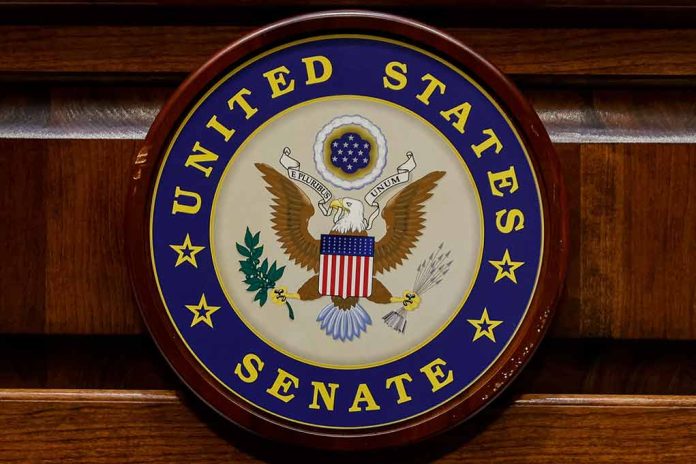
Dr. Mehmet Oz takes the helm of Medicare and Medicaid with a challenging mandate to reform healthcare for half of America’s population while navigating potential budget cuts and staffing reductions.
Key Takeaways
- Dr. Mehmet Oz has been confirmed to lead Centers for Medicare and Medicaid Services (CMS) in a 53-45 party-line Senate vote, overseeing health insurance for approximately half of all Americans.
- Oz plans to modernize CMS systems, address waste and fraud, while promoting healthier lifestyles and integrating AI and telehealth technologies.
- He faces immediate challenges with potential Medicaid cuts being debated in Congress and the loss of approximately 300 CMS staff members.
- Oz supports work requirements for Medicaid recipients but opposes using paperwork barriers to block enrollment.
- He will be responsible for decisions on Medicare and Medicaid changes proposed by the previous administration, including drug price negotiations and coverage for weight loss medications.
Senate Confirmation Brings New Leadership to CMS
Dr. Mehmet Oz, a renowned cardiothoracic surgeon and former television personality, has been confirmed as the new administrator of the Centers for Medicare and Medicaid Services. The Senate voted along party lines with a 53-45 result, placing Oz in charge of health insurance programs that cover approximately half of the American population, including Medicare for seniors, Medicaid for low-income Americans, and marketplace coverage under the Affordable Care Act. This confirmation comes at a critical time as Congress is actively debating potential cuts to Medicaid funding.
Oz’s appointment aligns with the administration’s broader health initiatives, particularly Health Secretary Robert F. Kennedy Jr.’s “Make America Healthy Again” campaign. The close relationship between Kennedy and Oz appears poised to shape the direction of federal healthcare policy, with both figures emphasizing preventative care and lifestyle changes as key components in addressing the nation’s health challenges. Their collaboration will be crucial as they navigate the complex healthcare landscape while working within tighter budget constraints.
Addressing Medicaid Challenges
During his confirmation process, Dr. Oz highlighted significant issues facing the Medicaid program, including low reimbursement rates that discourage physician participation and the strain of expanded eligibility without corresponding increases in resources. While he has not explicitly stated his position on the proposed Medicaid cuts currently being debated in Congress, Oz has indicated support for certain reforms, including work requirements for able-bodied recipients. However, he has drawn a distinction by opposing administrative barriers designed to reduce enrollment.
The financial challenges facing CMS extend beyond policy decisions to staffing constraints. The agency is expected to lose approximately 300 staff members, though this reduction is less severe than cuts facing other health agencies. This staffing reduction comes at a time when CMS programs require significant administrative oversight and as Oz has pledged to modernize systems and address waste and fraud—initiatives that typically require robust staffing resources.
Vision for Healthcare Innovation
Dr. Oz has outlined several priorities for his tenure at CMS, including promoting healthier lifestyle choices, integrating artificial intelligence and telehealth into healthcare delivery, and reimagining rural healthcare access. These initiatives align with his background as both a physician and health communicator. Despite past criticism for promoting certain unproven treatments during his television career, Oz has indicated support for evidence-based practices, including encouraging vaccination.
One of Oz’s first major tasks will involve decisions on Medicare and Medicaid changes proposed by the previous administration. He has committed to continuing Medicare drug price negotiations initiated under the Biden administration, providing some continuity in policy. Additionally, he will need to address pending decisions on coverage for weight loss medications, an area where his medical expertise could prove valuable in balancing clinical effectiveness with fiscal responsibility, as these newer treatments often come with significant costs.
Legal Challenges and Funding Issues
As Oz begins his leadership at CMS, external factors are already complicating the financial landscape. A federal judge has indicated plans to block the Trump administration from cutting $11 billion in federal funds designated for pandemic response and public health initiatives. This legal intervention stems from concerns that such cuts would significantly harm public health infrastructure and increase vulnerability to future pandemic threats. The ruling represents just one example of the complex interplay between executive policy decisions and judicial oversight that will shape Oz’s ability to implement his vision.
Dr. Oz’s management of CMS will ultimately be judged by his ability to maintain essential services for vulnerable populations while implementing reforms within budget constraints. His background as both a physician and communicator potentially positions him to build public understanding and support for necessary changes, but the path forward will require navigating significant political, financial, and operational challenges in America’s complex healthcare system.
Sources:
- Mehmet Oz confirmed by US Senate to lead Medicare and Medicaid
- Senate confirms Mehmet Oz to take lead of Medicare and Medicaid agency
- Dr. Oz confirmed to head agency that oversees Medicare and Medicaid




